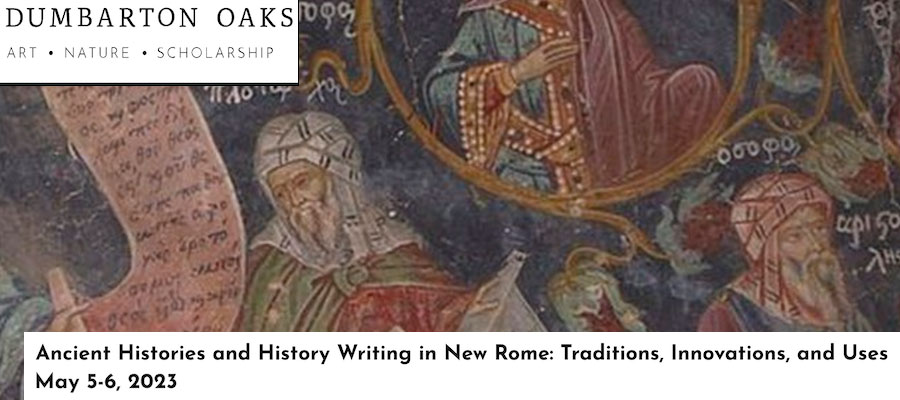Ancient Histories and History Writing in New Rome: Traditions, Innovations, and Uses, Dumbarton Oaks Spring Symposium, Dumbarton Oaks, May 5–6, 2023
History writing is a key site for the construction of ethical and political consciousness as well as historical memory. It allows individuals and communities to create and articulate their identity and positionality within the sweep of human history. In ancient Greece and the classical and medieval phases of the Roman empire, histories not only recorded past events, but either implicitly or explicitly told audiences how the past defined current communities and set moral and political agendas for future action. Different conceptualizations of the past amount to debates about who the authors thought they were, what was moral, and who their contemporaries ought to be. The study of traditions of historical writing is therefore an archaeology of civic identity, ethics, and politics.
This interdisciplinary symposium brings together scholars of ancient and medieval historical writing to explore connections and interactions between ancient Greek, biblical, classical Roman, and medieval Roman histories. Authors writing histories in eastern Roman society interacted variously with earlier Roman and Greek histories, as well as biblical histories, to construct conceptions of their community’s identities and relationships with the past. Rhetorical alignments signaled conformity with or breaking from pervious strands with these complex cultural traditions. Our explorations of the various ways medieval writers used, adapted, distorted, or ignored earlier texts will help us understand the complexities and nuances of medieval eastern Roman culture, community identity, and politics. In turn, the study of medieval uses of the classical historiographical tradition will yield fresh insights into the ways medieval attitudes and decisions shaped the preservation and creation of the classical canon.
Symposiarchs
Leonora Neville, University of Wisconsin–Madison
Jeffrey Beneker, University of Wisconsin–Madison
Advance registration required.
